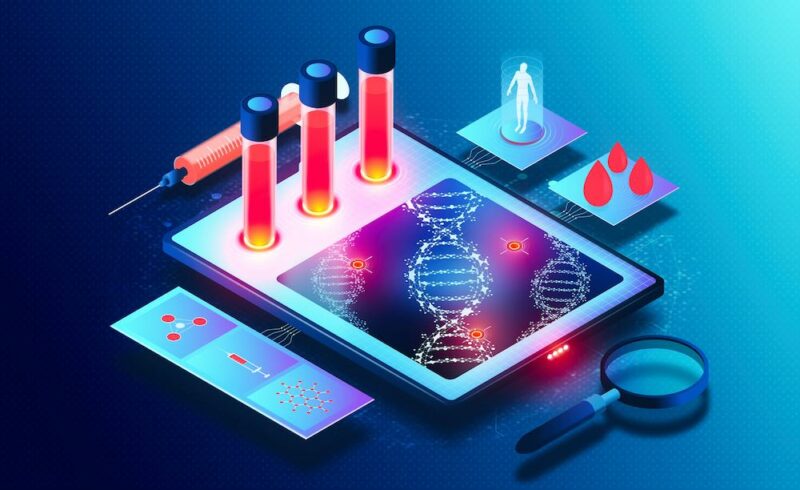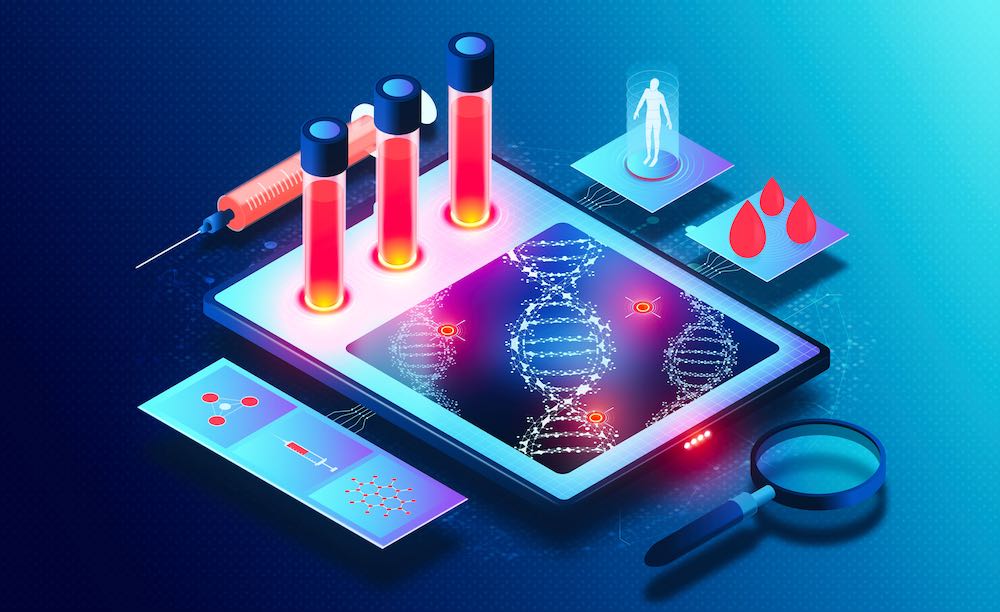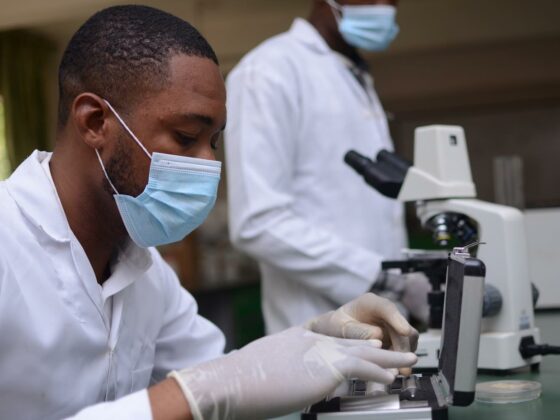Multi-cancer early detection (MCED) tests offer a feasible approach for detecting 36 different types of cancer, over two thirds of which have no screening tests available. The PATHFINDER study, reported at the European Society for Medical Oncology (ESMO) Congress 2022, held 9-13 September, Paris, represents the first prospective investigation to show MCED tests can detect cancer in patients with undiagnosed cancer, as previous studies only tested patients with known cancer.
“The results are an important first step for early cancer detection tests because they showed a good detection rate for people who had cancer and an excellent specificity rate for those who did not have cancer,” said senior investigator Deborah Schrag, from Memorial Sloan Kettering Cancer Center, New York. “I think what’s exciting about this new paradigm and concept is that many of these were cancers for which we do not have any standard screening.”
Currently, limited cancer screening programmes are available (namely breast, cervical, colon, lung [in high-risk individuals] and prostate [on individual patient basis]), with many other cancers lacking programmes. Development of a simultaneous screening test for multiple cancers offers the potential to create a cost-effective strategy with the ability to detect less common malignancies.
PATHFINDER, a single-arm prospective interventional study, was designed to evaluate the effectiveness of the Galleri® test, as well as time required to achieve diagnostic resolution. The Galleri multi-cancer early detection test, developed by GRAIL, uses cell-free DNA and machine learning to look across more than 50 types of cancer. It is based on the concept that methyl groups added to DNA provide a ‘hallmark of cancer’, and that methylation patterns on tumour-derived cell-free DNA show cancer-specific signals allowing prediction of the cancer signal origin. The PATHFINDER study, which took place across 11 US sites, enrolled 6,662 individuals aged ≥ 50 years at elevated risk of cancer but no suspicion of active cancer.
Results showed:
- A cancer signal was detected in 92 people, 1.4% of the 6,621 participants. Of these 92 people, 35 were eventually diagnosed with 36 different cancers.
- Of the cancers diagnosed, 19 were solid tumours, 17 were haematological cancers and seven were diagnosed in people with a history of cancer.
- Among confirmed cancers, 71% (25/35) had no routine cancer screening available and 48% of non-recurrent cancers were found at Stage I or II.
- MCED-predicted cancer signal origin had 97.1% accuracy and enabled targeted diagnostic evaluations.
- Of 6,290 people who were cancer-free, 99.1% received a negative test result.
- Among those with a positive test, the median time to achieve diagnostic resolution (to find cancer or decide there was no evidence of malignancy requiring further investigation) was 79 days.
- Among participants with a positive screening test, diagnostic resolution was achieved within three months for 73%.
- Median time to diagnostic resolution was longer for false positives (162 days); with 44% of these participants requiring following follow-up imaging or procedures three or more months later.
“The results are an important first step for early cancer detection tests because they showed a good detection rate for people who had cancer and an excellent specificity rate for those who did not have cancer,” said Schrag. The reason it took longer for definitive results in people who did not have cancer, she explained, was primarily because physicians opted to perform a number of different imaging studies to definitively rule out cancer.
“This study indicates that hope is on the horizon for detecting cancers that are currently unscreenable, but of course much more work is needed, and with experience and larger samples, these assays will improve. The tests need to be refined so they’re better at distinguishing tumour DNA from all the other DNA circulating in the blood,” said Schrag.
Commenting on the study Fabrice André, elected ESMO President 2023-2024, said, “We need comparative trials across all types of cancer to find out if having an early detection test affects morbidity and mortality. We also need to know how the tests benefit patients and how to discuss results with them.”
The advent of widespread MCED tests, he added, is likely to change the diagnostic and treatment infrastructure of cancer care. “We need to involve all stakeholders in deciding new pathways of care. We need to agree who will be tested and when and where tests will be carried out, and to anticipate the changes that will happen as a result of these tests, for example in the diagnosis and treatment of people with pancreatic and other cancers that are usually diagnosed at a much later stage,” said André, from Gustave Roussy Cancer Centre, Villejuif, France.
In England, the NHS-Galleri trial, led by Charles Swanton from The Francis Crick Institute, London, is currently underway to investigate clinical effectiveness of the MCED Galleri test in 140,000 asymptomatic people. After baseline blood collection, participants are being randomised 1:1 to having their sample analysed by the MCED or having their samples stored for potential testing (control arm).












